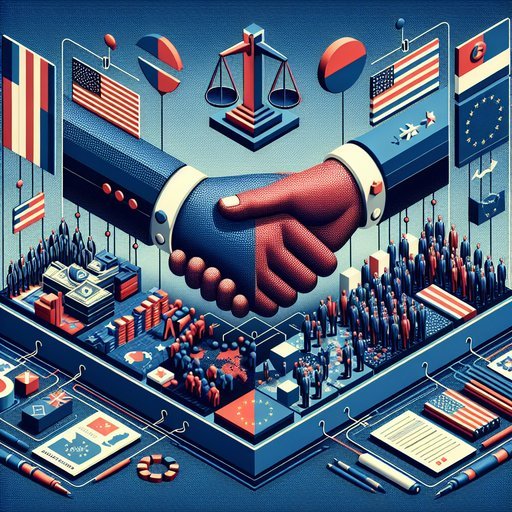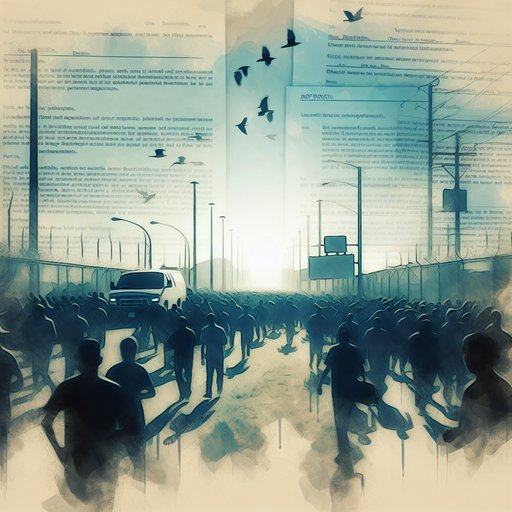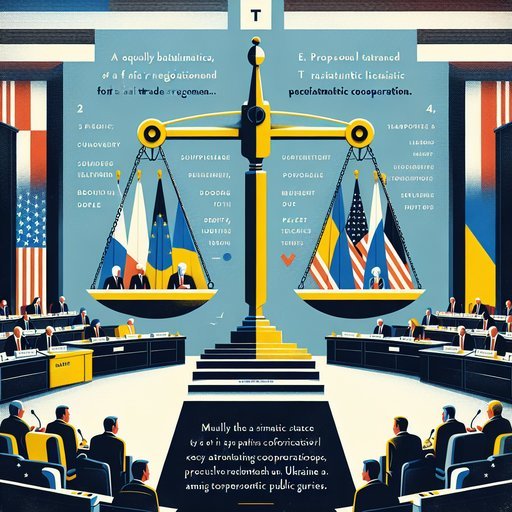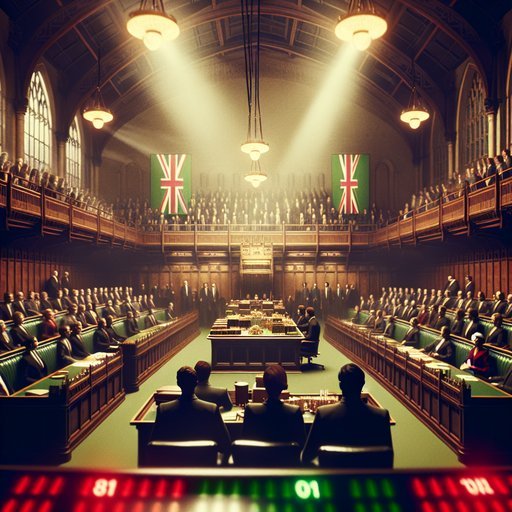
In a notable development ahead of the highly anticipated COP30 summit, Brazil has announced a bold proposal urging both corporate and local government entities to commit to more stringent climate targets. The move aims to strengthen the global effort to reduce greenhouse gas emissions and bolster climate action on multiple fronts.

In recent days, a heated debate has emerged on both sides of the Atlantic over policies influenced by right-wing ideologies. The European Union has announced the creation of an official body to scrutinize the funding of nonprofits, a move driven by right-wing forces eager to increase oversight of NGOs [1]. Meanwhile, in the U.S., discussions revolve around military strategies concerning Iran, with Trump publicizing his conversation with Tucker Carlson about the issue, adding fuel to the existing ideological divides [7].

As the U.S. edges closer to a potential government shutdown, President Donald Trump’s ambitious tax and budget proposal faces increasing scrutiny and opposition within Congress. The bill, which promises sweeping tax cuts and economic reform, comes with a hefty price tag, leading to fierce debates on its long-term implications [2]. Critics fear that the bill's passage could significantly increase the national deficit, triggering widespread economic repercussions [6]. With amplified partisan divides, the stage is set for a contentious battle over fiscal priorities.

Mark Carney, the newly elected Prime Minister of Canada, has stepped into office amid intensifying regional tensions and national unity challenges. While his election marks a significant political shift, Carney's immediate task is navigating the turmoil brewing in oil-rich Alberta, highlighting the complexities of Canada's energy-dependent economy [1].

Recent climate negotiations encountered a significant hurdle as leading nations clashed over the timeline for phasing out fossil fuels. The impasse emerged during a critical international summit aimed at reinforcing global commitments under the Paris Agreement. This deadlock threatens to undermine progress in efforts to combat climate change, despite mounting pressure from environmental activists and scientific communities.

As EU and US leaders gather at the 2025 Bilderberg meeting, the transatlantic relationship stands at a pivotal moment. Recent discussions have highlighted the need for stronger economic ties and enhanced security cooperation amid evolving global challenges. High on the agenda are issues such as improving trade relations and coordinating responses to security threats, including safeguarding infrastructure in the wake of rising geopolitical tensions.

In recent days, the United States has been rocked by a series of anti-Immigration and Customs Enforcement (ICE) riots in Los Angeles that have reignited debate over the nation's border policies. This turmoil has led to strong reactions from both sides of the political spectrum, with former West Virginia Senator Joe Manchin openly challenging the Democratic Party's stance on what he describes as 'disgusting' open border policies [3]. As the nation grapples with these internal challenges, echoes of similar migration policy critiques are being heard on the international stage, notably in Germany, where the country's own border policies are under review [4].

Recent developments in EU-US relations have taken center stage as both regions strive for a fair trade agreement, while also fostering transatlantic security cooperation. Spain's Economy Minister, Carlos Cuerpo, emphasized the importance of a “fair and balanced” tariff deal. Concurrently, EU and key partner nations are convening to bolster support for Ukraine amidst ongoing conflicts and to discuss security commitments at a diplomatic meeting in Rome.

As budget negotiations reach a fever pitch, recent developments have drawn national attention to a fiscal proposal that could redefine U.S. economic priorities. Amid protests in Los Angeles against workplace ICE raids, President Trump's 'Big, Beautiful Bill' remains a contentious point in the Senate, with a looming deadline of July 4th for its passage [6]. Amid legislative wrangling and public protests, the debate centers on spending cuts, social welfare impacts, and a significant debt ceiling increase [3].

On June 11, 2025, voters in New Jersey cast their ballots in a fiercely contested primary election, choosing their nominees for the upcoming gubernatorial race. Democratic candidate Mikie Sherrill and Republican candidate Jack Ciattarelli emerged victorious, setting the stage for a heated contest in November. This election is poised to be a significant barometer for national political dynamics, particularly in a state that has often been a battleground for both local and national issues [1][3].
























